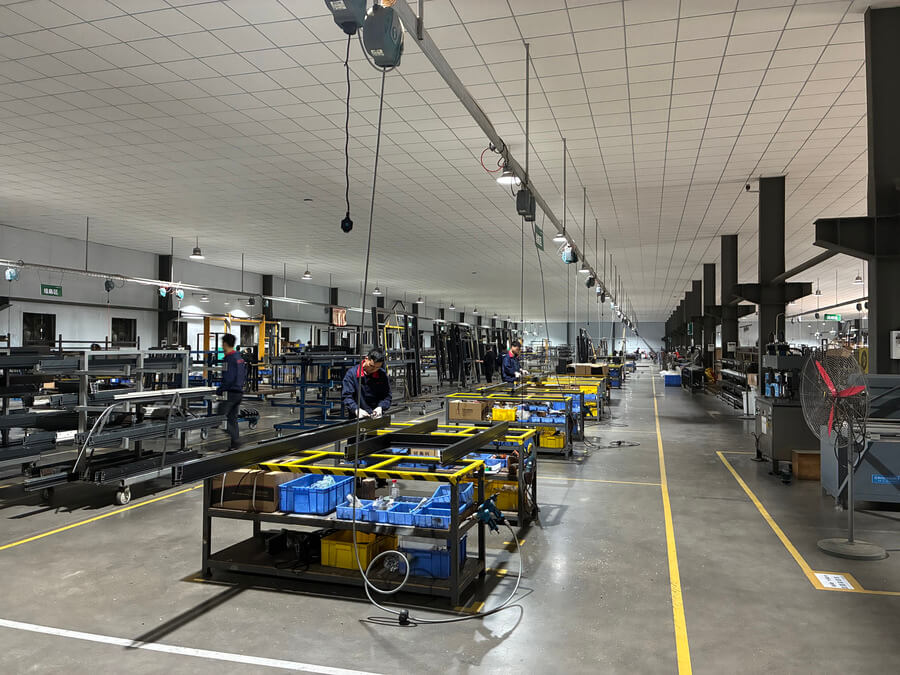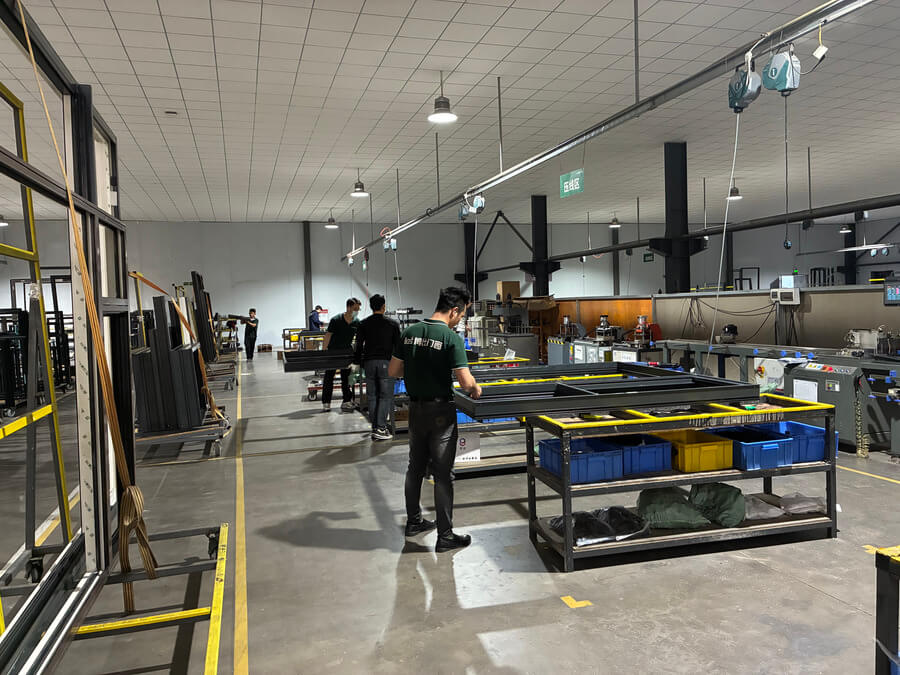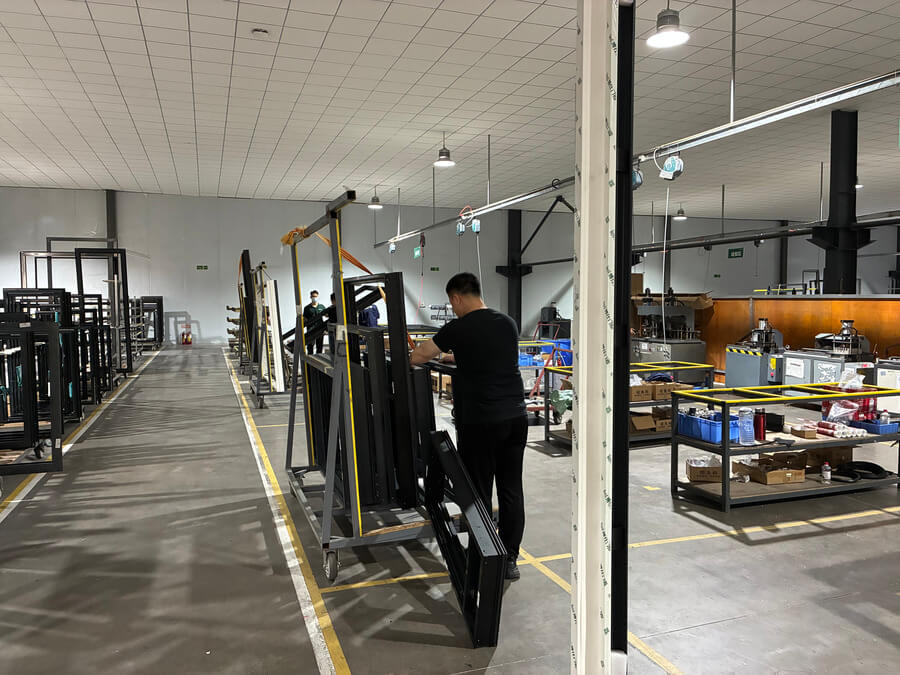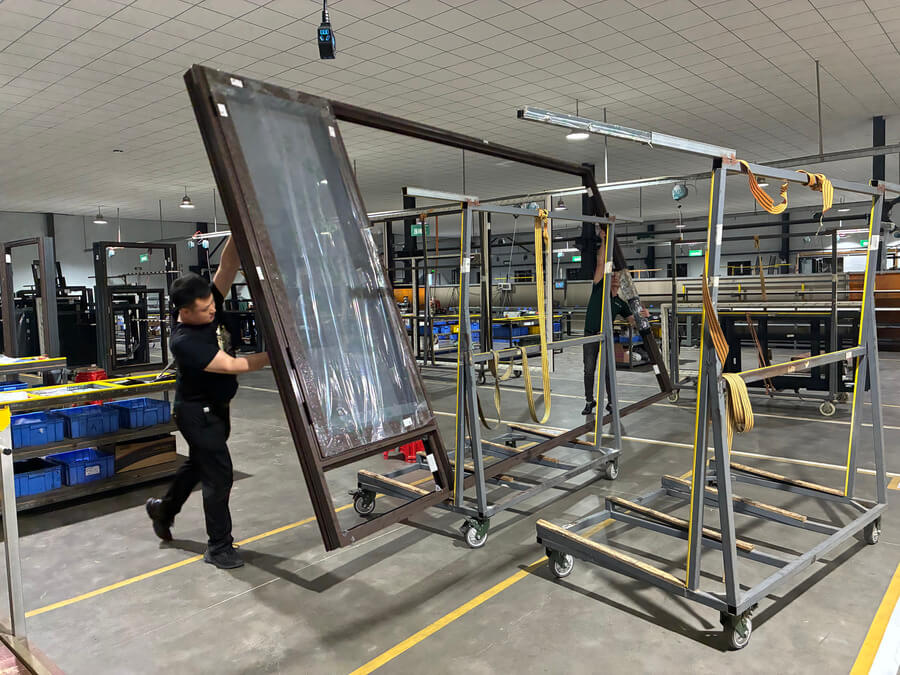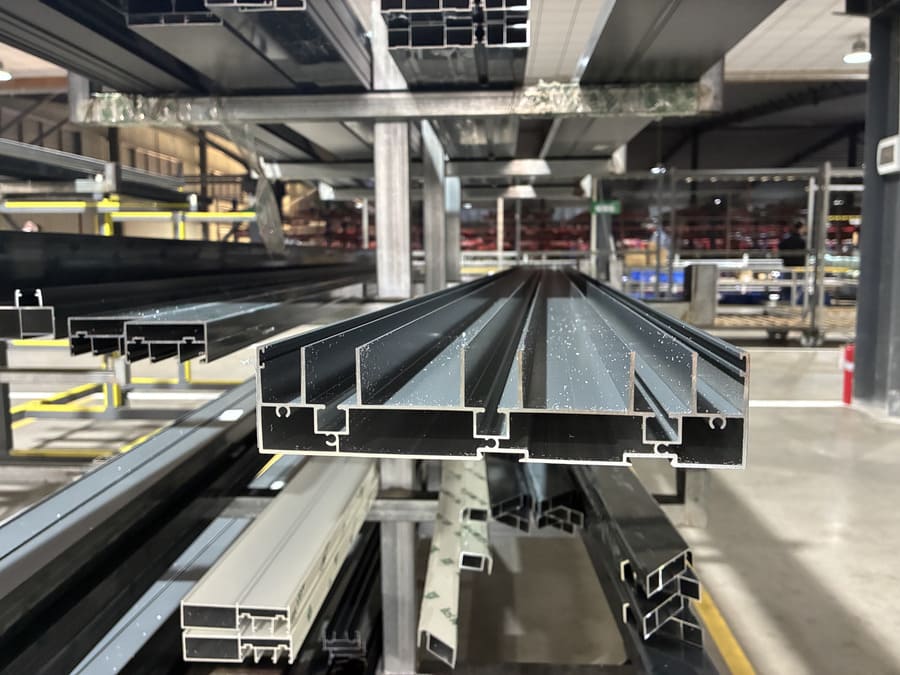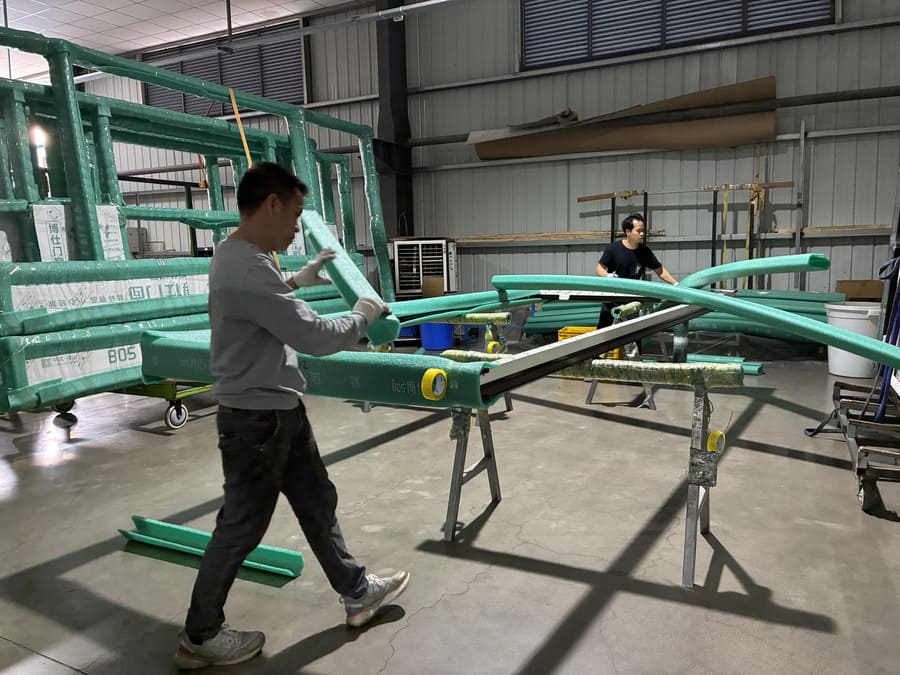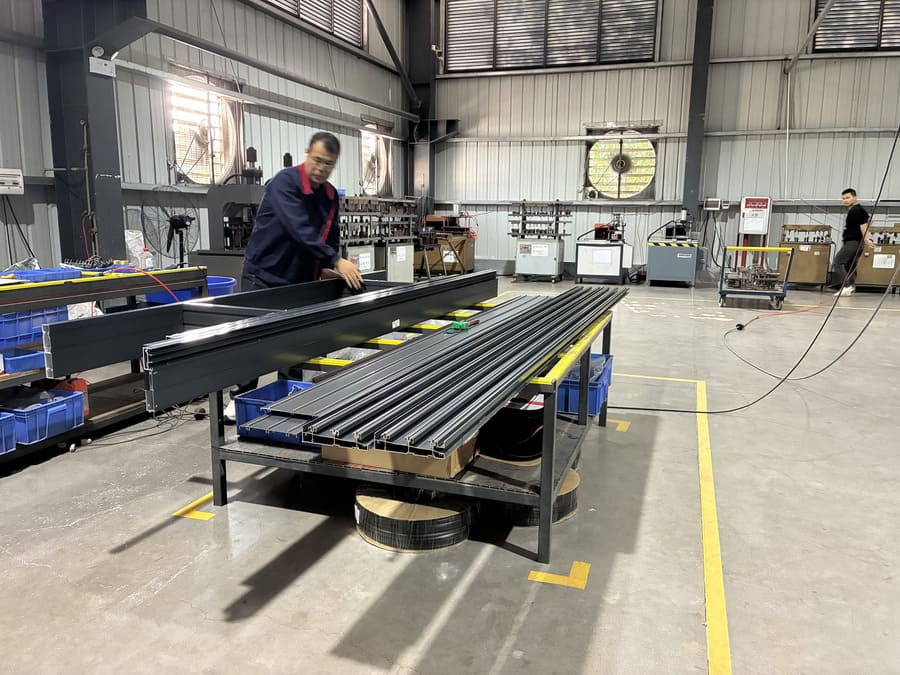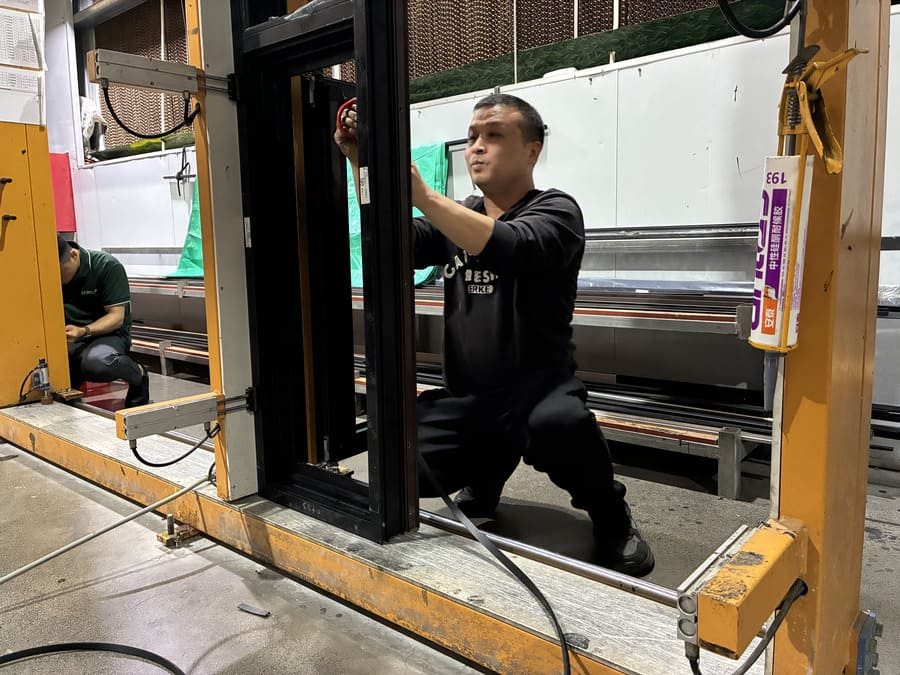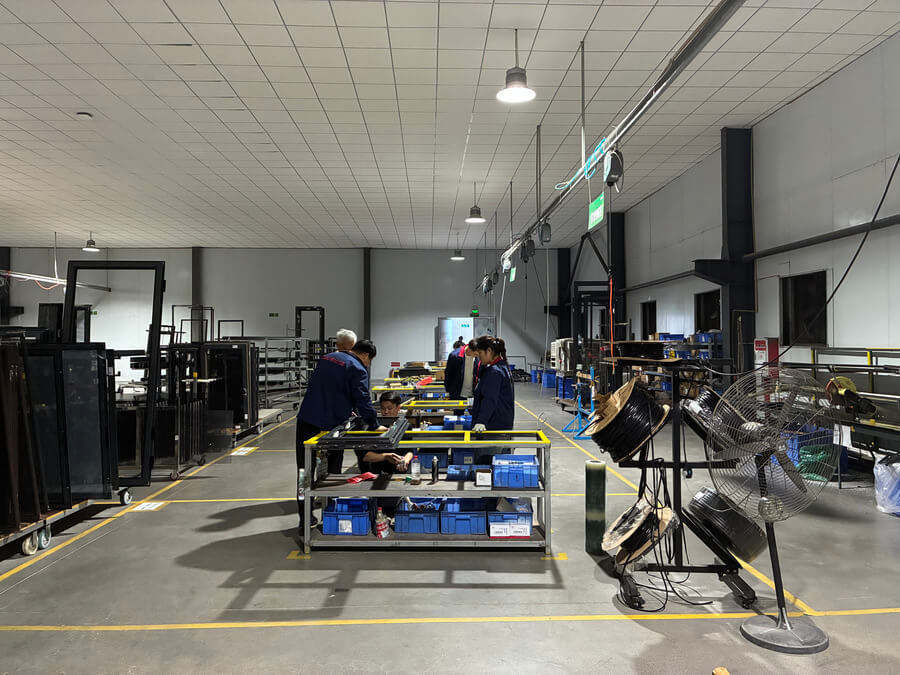What Exactly is a Custom Window System (CWS) and Why Does it Matter?

When we talk about custom window systems (CWS), we’re moving beyond standard, off-the-shelf windows. A CWS is precisely engineered and manufactured to meet specific project requirements, offering tailored dimensions, performance characteristics, and aesthetic features. This is particularly vital in regions facing stringent coastal requirements and hurricane impact zones in Florida and beyond.
Why does customization matter? Imagine a villa owner desiring expansive windows to capture breathtaking ocean views, or an architect designing a hotel requiring uniform, energy-efficient windows across hundreds of rooms. Standard windows might compromise on size, structural integrity, or desired energy performance. A custom window system, however, ensures a seamless fit, optimal performance, and design harmony. For example, for homes in coastal regions, impact-resistant windows are not just a luxury, but often a necessity to withstand high winds and flying debris during storms, ensuring hurricane protection.
Are Impact-Resistant Windows from CWS Worth the Investment?

Absolutely. While impact-resistant windows might represent a slightly higher upfront cost compared to standard windows, the long-term benefits and peace of mind they offer are invaluable, especially if you are in Florida and other coastal markets. Think of them as an investment in safety, security, and potentially even lower insurance premiums.
Impact-resistant windows, often referred to as hurricane impact windows, are engineered with laminated glass and robust framing to withstand extreme wind pressures and impacts from windborne debris. This impact resistance is critical in hurricane zones and areas prone to severe weather. Consider these advantages:
- Superior Protection: They provide unparalleled protection against hurricane-force winds and flying debris, preventing window breaches that can lead to catastrophic structural damage and water intrusion.
- Enhanced Security: The robust construction also makes them highly resistant to forced entry, bolstering your property’s security against intruders.
- Noise Reduction: The laminated glass layers also offer excellent sound insulation, creating a quieter and more peaceful indoor environment.
- UV Protection: Many impact windows also block a significant amount of harmful UV rays, protecting your furniture, flooring, and artwork from fading.
- Energy Savings: Modern impact-resistant CWS windows often incorporate energy-efficient features, helping to reduce heating and cooling costs.
For villa owners, homeowners, and hotel property companies in coastal areas, impact windows and doors are not just a worthwhile investment, they are a smart and responsible choice.
Windows from Custom Window Systems: Vinyl vs. Aluminum – Which is Best for You?

When selecting a custom window system, material choice is paramount, and for projects demanding strength, sleek aesthetics, and expansive designs, aluminum door and window systems often emerge as the superior choice. While vinyl windows offer certain advantages, aluminum presents a compelling combination of attributes that cater exceptionally well to builders, architects, and discerning property owners, especially in demanding environments.
Let’s delve into a comparative overview, highlighting why aluminum frequently becomes the preferred material:
| Feature | Aluminum Windows | Vinyl Windows |
| Strength & Durability | Inherently strong and rigid, ideal for large windows and commercial applications. Unmatched structural integrity for expansive designs. Excellent for coastal areas, particularly aluminum window and door products. | Durable and resistant to rot, corrosion, and insects. Good for many residential applications, but may require reinforcement for larger sizes or demanding wind loads. |
| Aesthetics | Sleek, modern aesthetic, ideal for contemporary designs. Offers narrow sightlines maximizing views. Wide range of finishes and colors, including anodized and powder-coated options for enhanced coastal durability. | Wide range of styles and colors, can mimic the look of wood. CWS vinyl offers design flexibility, but sightlines are typically wider than aluminum. |
| Maintenance | Low maintenance, may require occasional cleaning and lubrication of hardware. Exceptionally resistant to corrosion, ideal for harsh environments. | Virtually maintenance-free, never need painting or staining. Can be susceptible to fading or chalking over time in extreme climates. |
| Energy Efficiency | Thermally broken aluminum windows offer significantly improved energy performance, meeting and exceeding modern standards. Advancements in thermal break technology(The heat conduction paths of the inner and outer aluminum frames are separated by PA66 nylon insulation strips) have closed the gap with vinyl in many climates. | Excellent thermal insulation, often exceeding energy star® rating requirements. Can be highly energy-efficient in moderate climates, but thermal performance of aluminum has become increasingly competitive. |
| Cost | Can be a greater upfront investment than vinyl windows, especially for complex designs and high-performance options. However, long-term durability and aesthetic appeal often justify the investment. | Generally more cost-effective than aluminum windows initially. Long-term value proposition of aluminum should be considered, especially in demanding climates. |
| Sustainability | Aluminum is highly recyclable and considered a sustainable building material. Recycled aluminum retains its properties. | Vinyl is recyclable, but recycling infrastructure is less established than for aluminum. Production of vinyl can have environmental concerns. |
For large-scale projects, commercial buildings, and high-end residential designs, the inherent strength and design flexibility of aluminum door and window systems often make them the definitive choice. Architects and builders appreciate aluminum’s ability to achieve expansive window walls, curtain walls, and custom shapes without compromising structural integrity.
In coastal regions and hurricane zones, the robust nature and superior corrosion resistance of aluminum, especially when properly finished, provide exceptional long-term performance and resilience.
While vinyl windows certainly have their place, particularly in budget-conscious residential renovations, for projects prioritizing strength, modern aesthetics, and longevity, aluminum stands out as the leading material for custom window systems. Consider aluminum for projects demanding the best in performance and design.
How Do CWS Windows Enhance Energy Efficiency and Home Value?

Beyond protection and aesthetics, custom window systems play a significant role in energy efficiency and increasing property value. Energy-efficient windows are designed to minimize heat transfer, keeping your home cooler in the summer and warmer in the winter. This translates to lower energy bills and a more comfortable living environment.
CWS windows can be engineered to meet or exceed the most stringent coastal energy efficiency standards. Features like low-E coatings, insulated glass units (IGUs) with argon or krypton gas fills, and warm-edge spacers significantly reduce thermal conductivity. Low-E coatings reflect 78% infrared radiation via silver nanoparticle layers—like an invisible shield against solar heat gain. By reducing your reliance on heating and cooling systems, energy-efficient cws windows and doors contribute to a more sustainable lifestyle and lower your carbon footprint.
Furthermore, upgrading to high-quality windows and doors is a smart investment that can significantly enhance your home’s resale value. Buyers are increasingly conscious of energy efficiency and home security. Impact-resistant windows and energy-efficient window packages are attractive features that can set your property apart in the market. Choosing windows from custom window systems demonstrates a commitment to quality and long-term value.
Choosing Windows from CWS: What Factors Should Builders and Architects Consider?




For builders, architects, construction engineers, and purchasing managers, selecting the right custom window system involves careful consideration of several key factors:
- Performance Requirements: Understand the specific performance needs of the project, including hurricane impact resistance (if applicable), energy efficiency targets, sound insulation requirements, and durability expectations based on the location and climate. Are you in a high velocity hurricane zone (HVHZ)? Do coastal requirements dictate specific product certifications?
- Material Selection: Determine whether vinyl or aluminum window and door products best suit the project’s aesthetic, performance, and budget. Consider the long-term durability and maintenance requirements of each material.
- Design and Aesthetics: Choose window styles, frame colors, and hardware options that complement the architectural design and overall aesthetic vision. Custom windows systems has manufactured solutions for diverse architectural styles.
- Manufacturer Reputation and Experience: Partner with a reputable and experienced manufacturer in Florida or your region, like Boswindor, with a proven track record of delivering high-quality windows and doors since 1986. Look for certifications, warranties, and customer testimonials.
- Lead Times and Installation: Inquire about lead times for custom window system orders and ensure the manufacturer offers expert installation services or provides clear installation guidelines.
By carefully evaluating these factors and partnering with a trusted window and door factory like Boswindor, you can ensure your project benefits from manufactured high-quality windows and doors that deliver exceptional performance, beauty, and long-term value. We understand the nuances of hurricane impact zones in Florida and are ready to provide tailored solutions. Whether you need sliding doors, casement windows, or specialized sunroom glazing, Boswindor is your reliable partner.
Boswindor is committed to providing exceptional window and door products tailored to your specific needs. Contact us today to discuss your project requirements and discover how our custom window systems can elevate your designs and provide lasting protection and beauty.
FAQs:

What is the typical lifespan of impact-resistant windows?
Impact-resistant windows, when properly installed and maintained, can last for 20 years or more, often matching or exceeding the lifespan of standard windows. The durable laminated glass and robust frames are built for longevity.
Can impact windows help reduce my homeowner’s insurance?
In many hurricane-prone areas, including Florida, installing impact-resistant windows and doors can qualify you for significant discounts on your homeowner’s insurance premiums. Check with your insurance provider for specific details and potential savings.
Are there financing options available for window replacement projects?
Many window and door companies, as well as home improvement lenders, offer financing options to help homeowners manage the cost of window replacement projects. Explore different financing plans to find one that suits your budget and needs.







